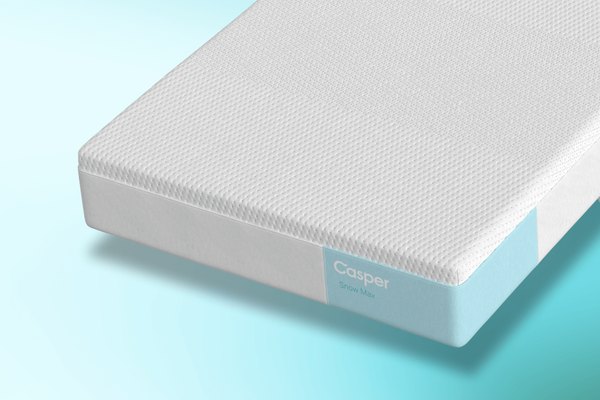
In today’s fast-paced world, with its endless demands and distractions, sleep is often relegated to the bottom of our priority list. Many of us sacrifice those much-needed hours of rest in favor of productivity, social media scrolling, or late-night binge-watching. However, the importance of sleep for overall health and wellbeing cannot be overstated. This blog will explore why sleep is essential, the consequences of sleep deprivation, and tips for achieving a restful night’s sleep.
The Science Behind Sleep
Sleep is a biological necessity, akin to eating and breathing. During sleep, various physiological processes occur that are crucial for maintaining health. The human body undergoes multiple sleep cycles each night, consisting of Rapid Eye Movement (REM) sleep and Non-REM (NREM) sleep. Each cycle plays a unique role in mental and physical restoration.
Stages of Sleep
Understanding the sleep cycle is key to appreciating why sleep is so vital:
- Stage 1 (NREM): This is the lightest stage of sleep where you transition from wakefulness to sleep. It lasts only a few minutes.
- Stage 2 (NREM): In this stage, heart rate slows, and body temperature drops. It typically lasts about 20 minutes and prepares the body for deeper sleep.
- Stage 3 (NREM): Also known as deep sleep, this stage is critical for physical recovery and growth. The body repairs tissues, builds bone and muscle, and strengthens the immune system.
- REM sleep: This phase is vital for learning, memory consolidation, and emotional regulation. Most dreaming occurs in this stage.
The Ripple Effects of Sleep Deprivation
The consequences of not getting enough sleep extend far beyond simple fatigue. Chronic sleep deprivation can lead to a range of health problems, including:
Physical Health Risks
- Heart Disease: Lack of sleep has been linked to increased risks of hypertension, heart failure, and stroke.
- Weight Management: Insufficient sleep can disrupt hormones that regulate appetite, leading to weight gain and obesity.
- Diabetes: Sleep deprivation can affect insulin sensitivity, increasing the risk of type 2 diabetes.
Mental Health Concerns
- Anxiety and Depression: Poor sleep quality is often a contributing factor to mental health disorders.
- Cognitive Impairment: Lack of rest can hinder concentration, creativity, and problem-solving skills.
- Increased Stress Levels: Sleep deprivation can elevate cortisol levels, which can contribute to chronic stress.
Enhancing Your Sleep Quality
While understanding the importance of sleep is crucial, knowing how to improve sleep quality is equally vital. Here are some tips to help you achieve better sleep:
Create a Sleep-Conducive Environment
- Comfortable Bedding: Invest in quality bedding that suits your sleeping style.
- Darkness is Key: Use blackout curtains to eliminate light disturbances.
- Manage Temperature: Keep your bedroom cool and comfortable, aiming for a temperature between 60 to 67 degrees Fahrenheit.
Establish a Sleep Routine
Consistency is crucial when it comes to sleep. Here are some suggestions for setting up a routine:
- Regular Schedule: Try to go to bed and wake up at the same time every day, even on weekends.
- Wind Down: Create a pre-sleep ritual, like reading or gentle stretches, to signal to your body it's time for sleep.
- Avoid Screens: Limit exposure to screens at least an hour before bedtime, as the blue light can disrupt your body’s natural sleep-wake cycle.
Nutrition and Sleep
Your diet plays an influential role in sleep quality. Eating the right foods can promote better sleep, while poor dietary choices can disrupt it. Here are some dietary tips to foster better sleep:
Foods That Help
- Complex Carbohydrates: Foods like whole grains can help boost serotonin levels, promoting relaxation.
- Magnesium-Rich Foods: Include spinach, nuts, and seeds in your diet, as magnesium has been associated with improved sleep quality.
- Amino Acids: Foods high in tryptophan, such as turkey and bananas, can help your body produce serotonin and melatonin, both essential for sleep.
Foods to Avoid
- Caffeine: Be mindful of caffeine consumption, especially in the afternoon and evening.
- Heavy Meals: Avoid large, rich meals close to bedtime, which can disrupt sleep.
- Nicotine: Like caffeine, nicotine is a stimulant that can disrupt your sleep patterns.
The Mind-Body Connection: Stress Management
Stress can severely impact your sleep quality. Learning how to manage stress effectively is key to achieving restful nights. Here are some strategies for stress management:
Meditation and Mindfulness
Practicing mindfulness through meditation or deep breathing exercises can help calm your mind and prepare it for a restful night’s sleep. Incorporate these practices into your nightly routine to improve your overall sleep experience.
Physical Activity
Regular physical activity can help you fall asleep faster and enjoy deeper sleep. Aim for at least 30 minutes of moderate exercise most days, but try to avoid vigorous workouts close to bedtime.
The Connection Between Sleep and Immune Health
Getting sufficient sleep is vital for a well-functioning immune system. Poor sleep can hinder your body’s ability to fight illness and infections. During sleep, your body produces cytokines, proteins that help combat inflammation and infection. Here’s how you can bolster your immune system through quality sleep:
Sleep, Immune Response, and Recovery
Adequate sleep allows your immune system to perform at its best. Inadequate sleep can reduce the effectiveness of vaccines and increase susceptibility to illnesses.
Age and Sleep Needs
Understanding that sleep needs vary by age is essential for fostering healthy sleep habits across your lifespan. Below are approximate sleep needs by age group:
- Newborns (0-3 months): 14-17 hours
- Infants (4-11 months): 12-15 hours
- Toddlers (1-2 years): 11-14 hours
- Preschoolers (3-5 years): 10-13 hours
- School-age children (6-13 years): 9-11 hours
- Teenagers (14-17 years): 8-10 hours
- Adults (18-64 years): 7-9 hours
- Seniors (65+ years): 7-8 hours
Sleep Disorders and Seeking Help
If you consistently struggle to fall asleep or stay asleep, it may be time to consult a healthcare professional. Sleep disorders such as insomnia, sleep apnea, and restless leg syndrome can significantly impact your overall health and wellbeing. Early intervention can lead to better outcomes and improved sleep quality.
Dreaming of a Better You
Understanding the importance of sleep is the first step towards a healthier lifestyle. By prioritizing your sleep, you can boost your overall health, improve mental clarity, and enhance your emotional well-being. Make sleep a non-negotiable part of your daily routine, and you'll discover the transformative effects it can have on your life. At The Sleep Loft, we believe that a good night’s sleep is the foundation of a good life. Prioritize your rest today for a brighter tomorrow!









